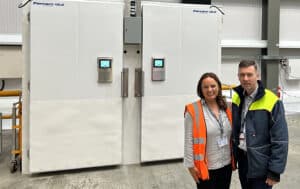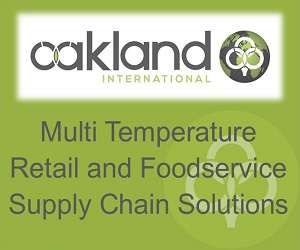A one-day workshop that will help the food industry understand how blockchain and other emerging approaches, such as bowtie, can support food safety and risk management systems will be held at Campden BRI on 31 March.
Campden BRI’s food safety management systems lead Richard Leathers said:
“Blockchain and bowtie are currently buzzwords in the food industry. However, few know what they actually are and fewer still understand their potential in the food and drink industry. This has led us to organise this workshop that will provide the industry with a thorough understanding of blockchain, other emerging approaches and bowtie.”
A blockchain, in simple terms, is a growing list of records, called blocks, that are linked using cryptography, which means that the records of a product’s journey throughout the supply chain are secure, traceable and cannot be tampered with. However, the applications of this technology can go beyond traceability. It can provide us with assurances on authenticity and provenance; product yields and waste reduction; and raw material and water usage efficiencies; as well as quickly giving us visibility of food safety and quality in complex supply chains.
The workshop will provide delegates with:
*an understanding of new food safety principles
*guidance on how to practically implement these systems
*a practical workshop on bowtie, and
*the opportunity to work with and discuss new concepts and techniques
While performing recent research, Andrew Collins, another Campden BRI food safety management systems lead, identified challenges with risk management and looked at approaches in other industries.
He added:
“The applications of this approach stretch far beyond what most in the food industry realise. This workshop will help us share what we’ve learnt about these approaches with the industry, especially those who manage food safety and risk. Food safety management systems have evolved in recent years from discrete studies, such as HACCP evaluations, to a more holistic approach based on the consideration of risks arising from threats, vulnerabilities, hazards [in a HACCP context] and their mitigation through the identification of effective controls implemented through in process management systems. A key challenge is in the communication of this holistic picture. HACCP while a very good tool, is used to manage the different categories of hazards – namely biological, chemical, physical and allergens. It is common that the requirement for risk analysis can be challenging and it uses a repetitive approach to look at each process. Bowtie takes a wider view on these risks and looks at the levels of control.”
Campden BRI will be joined by keynote speakers James Flynn, founder of Global Food Blockchain Initiative, Alistair Cowin of CGE Risk and Stephen Whyte of QADEX (industry leaders in digitisation of supply chain control systems).
Leathers continued:
“The digitisation of food and drink supply chains is here to stay. For those who work in manufacturing, technical, retail or logistical roles, you’ll want and need visibility of data for products and raw materials from the moment they are planted in the ground to the time they are consumed.”
The workshop is most suited to technical and quality managers in the food industry, and those who manage food safety, quality, authenticity and risk in the food supply chain including growers, manufacturers and retailers.











